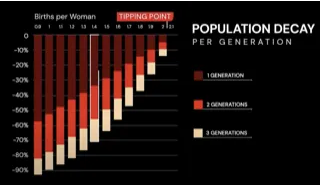… There was, however, one last check on the power of faction: The bureaucracy.
I know, that seems weird, but unless you’ve really studied this stuff — it’s not taught in most high school or even college classes, for some mysterious reason — you probably don’t know that the civil service used to be entirely patronage-based. Our two most famous literary customs inspectors, for instance (Hawthorne and Melville), got their jobs through political connections, and that’s the way it worked for everyone — every time the other party won an election, most of the bureaucrats got turfed out, to be replaced by loyal party men. Trust me: very few of the names on this list would ring much of a bell even to field specialists, but they were big political cheeses in their day; Postmaster General was a plum federal post that was often handed to loyal Party men as a reward for a lifetime of faithful service. And so on down the line, including your local postmaster.
It took until 1883 to finally kill of this last vestige of federalism, but the Pendleton Act did it. Here again, this isn’t taught in school for some mysterious reason, but the political class took a very different lesson from the Civil War than the hoi polloi. While for the proles the Civil War was presented as a triumph of the common man, the elite understood that it was training, logistics, bureaucratization, professionalism that won the war for the Union. The Republicans made a big show of putting up U.S. Grant as “the Galena Tanner” in their campaign rhetoric but Grant had been a bankrupt tanner, and indeed a conspicuous failure at everything except war … and even there, his record was carefully doctored to present an image of a bumbling amateur suddenly being struck by inspiration, when in fact Grant was a West Pointer with an impressive combat record in the Mexican War. Now is not the time or place to discuss the merits, or not, of various Civil War figures, so just go with me on this: Pretty much all the big name generals on both sides of the war were presented to the public as talented gentleman amateurs, and it was heavily insinuated that the ones they couldn’t so portray — McClellan, and especially Robert E. Lee — lost because they were too hidebound, too “professional”.
The reality is almost the complete opposite — yeah, Stonewall Jackson ended the Mexican War as a mere captain (no mean feat in The Old Army, but whatever), but he had a tremendous combat record, and was so much of a military professional that he actually taught at a military academy. This is not to say there weren’t naive geniuses in the Civil War — see e.g. Nathan Bedford Forrest — but the Civil War, like all wars since the invention of the arquebus, was won by hardcore, long-service, well-trained professionals. A naive genius like Forrest might’ve been a better tactician, mano-a-mano and in a vacuum, than a West Point professional like Custer — then again, maybe not — but wars aren’t fought in vacuums. They’re fought on battlefields, and they’re won by supply weenies and staff pogues.
[…]
They took that experience with them into politics, and so it’s no surprise that the Federal government of the Gilded Age, though tiny by our standards, grew into such a leviathan in so short a time. Again, I’m just going to have to ask you to trust me on this, since for some reason it never gets covered in school, but back in the later 19th century words like “efficiency” really meant something to the political class. All those politician-generals (and politician-colonels and politician-majors and all the rest down at the local level) expected the State to function like the Army — that is to say, as a self-enclosed world where efficiency not only counts, but triumphs. An amateur civil service can’t do that, and so the days of the political sinecure had to end.
Severian, “Real Federalism Has Never Been Tried”, Rotten Chestnuts, 2021-05-03.
November 9, 2023
QotD: The end of the “spoils system” and the professionalization of the bureaucracy
November 8, 2023
Reality will continue to be real long after you can keep on denying it
But, as Chris Bray illustrates, some people have truly heroic reality-denial complexes going on and they want you to deny reality along with them:
Hey, look, it’s the zeitgeist.
No one knows what to do. About this:
Court records show the man who pushed Whitcomb currently faces charges ranging from harassment and menacing to assault and illegal possession of a knife. He has also been accused of groping and assaulting women on the north side of the neighborhood and is on the state’s sex offender registry for forcible touching and sexual abuse convictions in 2017 and 2021.
He hurts people a lot, and he’s a registered sex offender, and he sometimes carries a knife, and he walks up to strangers on the street and just hurts them for no reason, and he especially likes to hurt women quite a lot, especially in ways that seem pretty consistently sexual. It’s … complicated. Hard to know what to do!
Note that the story takes care to avoid identifying the person the story is about, because the reporter is concerned that identifying the serial aggressor will make it possible for someone to hurt him: “Gothamist has chosen to withhold the man’s name because of his mental illness and because he is at risk of additional attacks by people who want to take matters into their own hands”. And hurting people is wrong. To prevent attacks, see, you don’t tell people the name of a person who keeps … attacking.
The story warns that the constant aggression of [unnamed person] is a warning about “the systemic failures that allow people to fall through the cracks,” because what a man hurting people over and over again shows us is that the man who’s being forced to hurt all those people by society’s deep cruelty isn’t getting enough services. Greenpoint, an increasingly expensive neighborhood in Brooklyn, is represented by “some of the city’s most progressive lawmakers”, but they’re still struggling with these hard questions. America in 2023, ladies and gentlemen.
But finally, as a test of the reporter’s good faith, we get a broader description that contextualizes the problem. There are a lot of people in New York City who are being forced to hurt other people because they aren’t being given enough services, and here comes a famous example: “Earlier this year, Daniel Penny fatally choked Jordan Neely, a beloved Michael Jackson impersonator who Penny said was ‘going crazy’ and acting aggressively toward fellow subway riders.”
That’s it — that’s the whole description. Who was Jordan Neely? He was a man who impersonated Michael Jackson, and he was loved a whole lot, but then for some unaccountable reason Daniel Penny claimed the beloved man was going crazy, so he just suddenly killed the poor man. It’s strange that this Penny person would say something like that, right?
Now, in a city of eight million people, Jordan Neely was on a list, kept by the city government, of the fifty homeless people whose behavior is most persistently troubling. His case was regularly monitored by the “Coordinated Behavioral Health Task Force”, which “consists of workers from across city government, including the departments of Health, Homeless Services and Hospitals, along with representatives of the nonprofits that the city contracts with to try to connect homeless people to shelter and services, a process known as outreach”. At the time when the mean Daniel Penny suddenly killed him for no reason, Neely had an active arrest warrant. And other passengers in the subway car said that — well, let’s turn to the headline in the New York Times: “Witnesses in Subway Chokehold Case Describe Fears of Death and Violence“.
Mel Blanc on How He Created His Iconic Voices | Carson Tonight Show
Johnny Carson
Published 27 Jun 2023Original Airdate: May 26, 1983
(more…)
November 7, 2023
Birth Gap, the future none of us expected
Elizabeth Nickson takes the warnings of infertility from BirthGap quite seriously:
Jordan Peterson’s face morphed through a series of changes as he realized that nine out of ten women who don’t have children, wanted them. Ready to blame the culture of narcissism, he stalled confused, wrestling his face to neutral. I knew that fact from experience. For the many women I know who don’t have children, it is an abiding sorrow. From country to country, class to class, race to race, the sorrow is coruscating and it is ignored or diminished.
Only one in ten women actually don’t want children. One in ten is infertile, but the rest who don’t have children and that is one-third of us and counting, wanted them. By the time they are in their 40’s and incapable, badly.
Steven F Shaw searches for answers in Birth Gap, his masterwork documentary, the first part of which you can watch here. The most obvious is that they waited too long, thinking it was possible, their “career” taking precedence. He interviews two prominent women in their late 30’s, both journalists. One of whom has a child, and having had one, wanted more but it was too late. “No one told us”, she said. Throughout her childhood and education, no one told her that the hammer would come down, that fertility drops off a cliff in your 30’s. That if you are 30 and childless, there is a 50% chance you won’t have children. The other, Megan McArdle, who writes for the Washington Post, left it too late. McArdle is a brilliant woman. If she didn’t know she was playing with fire, who could?
The catastrophic statistics run across all cultures but sub-Saharan Africa. Every industrialized country is racing to the bottom, which is to say extinction within four or five generations. Cities left to ruin, old people without help, decaying schools, hospitals, and no employees to be found. The unretrievable extinction of the culture and its people. I’ll leave it to you to follow Shaw’s math, but it is convincing. And he is by no means, alone in his analysis.
Europe, Japan and especially South Korea are by far the most in trouble. But Spain, Italy, the Scandis, are not far behind. America’s massive migration is masking the effect now, but, as Shaw doesn’t point out, but others have, immigrants quickly default to the current zeitgeist. Even in Muslim countries, pace Mark Steyn, women are choosing to not have children until too late. And forget multiples, even for the devout, it’s no longer on the cards.
To me, one underlying reason is the firehose of overpopulation propaganda that we have endured for the past fifty years. Women, in general, as kids, are good girls, accepting of authority, and compassionate. When told their desire for children is stressing the earth, they are more likely to accept that nonsense without question if it is coming from every authority figure in every sector of the culture. Today from kindergarten on, we are taught that we are a virus, a plague on the earth. Who among us, at the age of 15 or 25, can contravene that level of brainwashing? Contrast Peterson saying this week, “we can make the deserts bloom”. When was the last time you heard that sentiment from anyone in authority?
November 6, 2023
“But here’s the catch, if you actually try to put this philosophy into practice, you might sell your granny to sex traffickers”
Ted Gioia explains why (people like) Sam Bankman-Fried drove him away from his formal studies in Philosophy at Oxford:
I abandoned philosophy because of Sam Bankman-Fried, the crypto scammer.
Well, that’s not entirely true. I abandoned my formal study of philosophy because of people like Bankman-Fried.
Unfortunately, they were my professors at the time.
Where do I even begin in telling this?
It’s not easy. That’s why I’ve never given a full account of my years as a philosophy student at Oxford — despite some readers requesting this. I don’t talk about it because the story is complicated.
But Sam Bankman-Fried gives me the excuse — or even the necessity — of digging into this gnarly matter. That’s because the crypto scammer was deeply involved in a philosophical movement that originated at Oxford. It draws on the same tenets I was taught in those distant days.
My teachers didn’t run crypto exchanges, and (to my knowledge) never embezzled anything more valuable than a bottle of port from the common room. Even so, there’s a direct connection between them and Mr. Bankman-Fried.
They were erudite and devoted teachers, but I was disillusioned by what they taught. It eventually chased me away from philosophy, specifically analytic philosophy of the Anglo-American variety.
I had no idea that their worldview would come back to life as a popular movement promoted by the biggest scam artist of the digital age. But I’m not really surprised — because it’s a dangerous worldview with potential to do damage on the largest scale.
The philosophy is nowadays called Effective Altruism. It even has a web site with recruiting videos — there’s a warning sign right there! — where it brags about its origins at Oxford.
But here’s the catch, if you actually try to put this philosophy into practice, you might sell your granny to sex traffickers.
You think I’m joking?
In fact, that’s exactly what you would do. Effective altruists don’t look at the actual actions at hand or their consequences today — hah, that would be too obvious. They only think about long-term holistic results, and hope to maximize pleasure and good feelings in the aggregate:
So it stands to reason that:
- Granny is old and doesn’t have long to live, so she can’t experience much pleasure even under the best circumstances.
- But the sex traffickers could use Granny to increase the pleasure of many of their customers.
- Hence …
I’m not going to spell it out for you, but you can guess where this is heading.
You just better hope that, if you’re ever a grandparent, your progeny aren’t Effective Altruists.
November 5, 2023
Military “institutional racism” and the Expert Infantry Badge
Chris Bray on a recent article in which a USAF Colonel lectures other “white colonels” about institutional racism in America’s military services:
Thoughts about the Air Force colonel who delivers sanctimonious lectures about institutional racism to his fellow “white colonels”.
In you’re an infantry soldier in the US Army, you can distinguish yourself by earning an Expert Infantry Badge. To do that, you have to qualify as an expert with the rifle, then complete a series of skills tests like “set headspace and timing on a caliber .50 machine gun” and “operate as a station in a radio net with SINCGARS radio single channel”. Then, finally, you have to complete a 12-mile road march. You can read the standards for that event here: carry a rifle and magazines, wear a helmet at all times, carry a rucksack weighing at least 35 pounds, and so on. When the person with the stopwatch says that three hours have elapsed, you’re either standing behind the finish line or in front of it; you either earn the EIB or you don’t.
The test isn’t subjective — the judges don’t award you style points. If you crawl across the finish line in a pool of blood and urine, sobbing for mommy, but you do it in less than three hours, and you still have your rucksack and your rifle and everything else at the end, you get the EIB.
Nor is it weighted. If you’re a fourth-generation VMI graduate with a fine old family name that can be found on the rolls of the Mayflower Society, you get the EIB if you cross the finish line on time. If you’re an E-2 who grew up in a trailer park and barely made it out of high school and doesn’t remember the names of all your so-called stepdads, you get the EIB if you cross the finish line on time. Officers and enlisted work to exactly the same standard. The credential comes from the task, full stop. This fact is the core of every credential you can earn in the military: If you’re authorized to wear the Parachutist Badge, you went to Fort Benning, or whatever they call it now, and jumped out of the plane five times without missing the ground. You did the thing. Doing the thing is who you are, in a growing list of things.
As a set of organizations built on task competence, for plainly measurable tasks that can’t be faked or fudged, the armed forces have been America’s first meritocracy. The first black West Point graduate was commissioned in 1877; the first black Medal of Honor recipient was born into slavery. Even in the segregated military, credentials obtained through task competence bore weight, as the court-martial of Jackie Robinson suggests with its outcome: In 1944, in Texas, a black officer was correct to harshly demand respect from a white enlisted soldier.
If you’ve served in the military, you’ve seen this. In my first posting as an infantryman, my company commander, first sergeant, platoon sergeant, and squad leader were black, a fact that I never heard anyone even mention. Rank, profession, and authority come from doing, without socioeconomic or racial chutes or ladders: If you can fly the plane, you’re a pilot. Up to the boundaries of the flag ranks, politics and identity don’t matter. (Regarding those flag ranks, see the late David Hackworth’s discussion of “perfumed princes”.)
And so the descent of the American military into the performative politics of DEI and equity and Robin DiAngelo books just blindly shits on the core value of the American military, which is that you get the rank and the status for what you do, full stop.
November 3, 2023
Understanding Combined Arms Warfare
Army University Press
Published 24 Mar 2023Designed to support the U.S. Army Captains Career Course, “Understanding Combined Arms Warfare” defines and outlines the important aspects of modern combined arms operations. This is not a complete history of combined arms warfare. It is intended to highlight the most important aspects of the subject.
The beginning of the documentary establishes a common understanding of combined arms warfare by discussing doctrinal and equipment developments in World War I. The second part compares the development of French and German Army mechanization during the interwar period and describes how each country fared during the Battle of France in 1940. The film concludes by showing how the United States applied combined arms operations in the European Theater in World War II.
(more…)
November 2, 2023
With progressive allies like these …
In The Free Press, Suzy Weiss and Francesca Block record the reactions of progressive Jews who are waking up to discover that their “allies” hate them and want them dead:
After Donald Trump was elected, Emily Rose, 51, flew to New York with her daughters to walk in the Women’s March. She demonstrated on the streets of Minneapolis, where she lives, in the days after George Floyd’s murder. She donated money to small, black-led movements and social justice organizations that she believed in. She unlearned and then re-educated herself, as white Americans were instructed to, and read the teachings of anti-racist scholars like Ta-Nehisi Coates.
But then, after the massacre in Israel on October 7, when some 1,400 Jews were brutally murdered, not to mention the rapes, beheadings, and instances of torture, Rose began to notice something odd from the cohort of fellow progressives she admired: they were cheering for the other side.
“I started to see these intelligent, educated people, whose mission is to make our system better for people of color, suddenly posting all this anti-Israel, pro-Palestinian stuff,” Rose said. “I’m not changing my values, but screw the allyship. I will not stop fighting, because I believe in the causes themselves. But as for going out of my way to support, to post, to give money? I’m done.”
While professional politicos, like DSA founder Maurice Isserman, are publicly stepping down from their parties and denouncing organizations that justify, or even cheer, the events of October 7, and wealthy Jewish donors claw back their millions from elite universities that they say helped foment antisemitism on their campuses, there’s a quieter, more personal reckoning happening among progressive Jews. Like Rose, they feel betrayed by a left that they thought would have their backs.
Dov, 30, a Canadian musician who didn’t want to share her last name for privacy reasons, is transgender and a self-proclaimed “political progressive”. Since October 7, she says, “Every time I open Instagram I’m just like, blocking or deleting people that I thought I knew.” She calls anti-Zionism “cloaked antisemitism”.
Josh Gilman, 37, who lives in Arizona and prides himself on having friends across the political spectrum, says he has been muting even close friends who espouse anti-Zionist views. “I don’t need the emotional distress,” he told The Free Press. “If there’s someone who is truly my friend, it makes me feel that they very much don’t understand who I am as a person.” He’s cut out people he had invited to dinner at his home, and who he had trusted around his family and children.
“There’s a line in the sand, which is Israel,” he said.
Nate Clark, 34, lives in Virginia. He’s marched for gay rights, and in 2020, for the removal of statues of Confederate soldiers in his home state. He said his choice to stand up for others is rooted in his Jewish identity.
“As a Jew, I feel like it would be weird if I went to Germany and took a right turn down Hitler Avenue or saw a statue of Eichmann, and then hear people claim ‘Oh, it’s our history. We’re just proud of our history’?” he told me.
Since October 7, he’s found himself “politically homeless”.
November 1, 2023
They don’t actually offer post-grad studies in anti-semitism … formally, anyway
Glenn Reynolds on the somehow surprising-to-academics discovery that western universities are hotbeds of antisemitism:
UC Berkeley Law School Dean Erwin Chemerinsky is shocked, shocked at the amount of antisemitism present throughout elite academia.
Obviously, he hasn’t been reading my blog. Over 20 years ago I was running a series of posts tagged “Berkeley Hatewatch Update”, tracking hateful and antisemitic behavior at UC Berkeley.
Like this one:
Or this one:
To be fair, Erwin wasn’t Dean at Berkeley Law back then, when it was still called Boalt Hall.
[…]
So even in Chemerinsky’s own backyard, the signs have been there continuously for basically the entire 21st Century to date. If Chemerinsky read my blog, he’d have known about happenings there, and elsewhere throughout the higher education world, that apparently are news to him.
Well, to be fair, deans have more important things to do than read blogs. On the other hand, well, welcome to the party, pal. Pointing out the flourishing, toleration, and even encouragement of antisemitism in the higher education sector has largely been the function of “right wing” outlets. Mainstream and left-wing media (but I repeat myself) have had little desire to air the dirty laundry in public. And, anyway, they’re increasingly staffed with recent graduates from elite schools, steeped in Critical Race Theory, “decolonization” talk, and the like, who see this antisemitism (along with prejudice against Asians and “whiteness”) as natural and laudable, instead of as what it is, which is evil and un-American. The truth is that support for antisemitism and mass murder isn’t an aberration for the far left that dominates American campuses now. As Ilya Somin notes, it’s baked in: “It’s rooted in a long history of defending horrific mass murder and other atrocities”.
The BAR M1918A3 by Ohio Ordnance – Shooting and Mechanism
Forgotten Weapons
Published 13 Jul 2014Today we’re looking at one of Ohio Ordnance’s semiauto M1918A3 BARs – how it shoots, how it works, and what the pros and cons of the military BAR variants were in World War I and World War II.
(more…)
QotD: The original United States government
I think governments, being human institutions, evolve as people do – and evolution, as we know, is copious, local, and recent. Put as simply as possible: If the government the Founders designed worked as intended (note: IF), it only really worked for them – that is, for Anglo-Celt misfits in a frontier society with, at best, 18th century technology and information velocity.
And in any case, that government – IF it worked as designed – lasted the span of one long-ish (then, average now) human lifetime: 1788-1861.
Most “political” problems, on this theory, can be boiled down to the attempt to retrofit old, unsuitable institutions to new creatures. To take the most basic example, that stuff about a “well-regulated militia” rests on the assumption – integral to a rough frontier society of Anglo-Celt misfits – that everyone is armed, and competent with their arms. This is simply not the case in a more settled society, with the higher information velocity that entails / requires, so we get all the endless wrangling over “gun control” (assuming anyone in that debate was ever arguing in good faith, which is also a big IF, etc.).
One obvious counter to this line of thought is to put it mostly down to technology – just as the Founders couldn’t imagine drones and ballistic missiles and “assault rifles” and the rest while they were writing the 2nd Amendment, so the problems with government can almost all be boiled down to old institutions trying to cope, not with new people, but with new technology.
Severian, “Bio-Marxism Grab Bag”, Founding Questions, 2021-01-21.
October 31, 2023
As we’re always told in a pious tone of voice, “violence never settles anything”
Chris Bray, ever the iconoclast, begs to differ:
One of the things everyone knows about Gaza is that the Israeli attack is just creating more violence, as the next generation of Palestinians watches the bombs fall. Inevitably, the story goes, the young are learning hate and rage, and will pay it forward. Here’s the upscale think tank version of the argument, under the headline, “Israel risks creating a newly traumatized and radicalized generation of Palestinians”:
What will remain of Gaza’s population, and among Palestinians elsewhere in the occupied West Bank and East Jerusalem and inside Israel proper, will be a newly traumatized and radicalized generation of youth, none of whom were born or of voting age when Hamas was elected … As a result, Hamas’s self-declared raison d’etre — “resisting the [Israeli] occupation with all means and methods” — will only grow in the minds of Palestinian youth. This will render unsuccessful Israel’s attempts to eliminate Hamas militarily.
Here’s an example of the Twitter rando version, which you’ll see over and over again if you engage with social media at all:
But is that true? Without advocating for brutality, I find myself looking for historical examples and mostly coming up with the opposite. To start managing the “yes, but” up front, there are many ways of waging war, and the extractive nation-building warfare of an imperial constabulary — low-grade fighting, prolonged counterinsurgency without decisive violence — does seem to often lead to more violence and “blowback” over time. But what Israel is doing now in Gaza seems like something else entirely.
If this violence will create “the next generation of Hamas”, then the children of the Germans who were firebombed in Dresden and Hamburg should be constantly strapping on suicide vests and attacking Ramstein air base. After the Wounded Knee massacre, it shouldn’t be safe for white settlers to live near the Lakota, and South Dakota should be a hellscape. Or consider North Vietnam, which won its war: “The US carried out more than a million bombing raids during the 20-year conflict, dropping some 5 million tonnes of ordnance on the Southeast Asian country.” After the war, a substantial Vietnamese population resettled in California. Violence trains the next generation to hate, right? So the Vietnamese must constantly attack Orange County.
The horror of total war has mostly not seemed to produce more violence. It seems to have mostly left later generations brutalized and horrified, and highly unlikely to go on fighting. Waging war decisively seems to be historically … decisive? The experience of crushing defeat seems to be a cycle-breaker, and even a horrifyingly costly victory — as for the North Vietnamese — seems to limit the appetite of next generations for more war.
Japan nurtured a profoundly violent warrior culture for a long time, with the nation’s soldiers serving as brutal invaders and horrible occupiers, then faced a ghastly campaign of firebombing and two nuclear bombs. Japan no longer has a brutal martial culture; the next generations didn’t become the new warriors. The currently popular theory says that they had to: the children witnessing this horror will be the next generation of militants, because trauma teaches violence. Tomorrow’s Hamas comes from today’s JDAMs. The people who lost World War II don’t seem to prove that theory.
Someone is going to say in the comments that I have blood on my fangs, but the point isn’t to cheerlead for the killing in Gaza. The point is to consider evidence about what comes next, and to ask what the comparable examples are. Is it factually true that youth, traumatized by war, become the violent next generation? We ran this experiment a lot in the twentieth century, and I think we have some strong hints at a consistent answer.
As Robert Heinlein had retired Lt. Col. Jean V. Dubois say to his History and Moral Philosophy class in Starship Troopers:
Anyone who clings to the historically untrue — and thoroughly immoral — doctrine that “violence never settles anything” I would advise to conjure the ghosts of Napoleon Bonaparte and the Duke of Wellington and let them debate it. The ghost of Hitler could referee, and the jury might well be the Dodo, the Great Auk and the Passenger Pigeon. Violence, naked force, has settled more issues in history than has any other factor, and the contrary opinion is wishful thinking at its worst. Breeds that forget this basic truth have always paid for it with their lives and their freedoms.
In the 1920 presidential election, Americans voted overwhelmingly for a return to “normalcy”
Warren G. Harding’s term in office has been treated like a punchline by progressive writers and commentators for a century, but Lawrence W. Reed refutes this easy mockery and points out that the winner of the 1920 election deserves much better:
Routinely dismissed as a bad chief executive, Harding’s reputation is undergoing a long overdue renovation. The latest contribution in that regard is a new, must-read biography by Ryan S. Walters titled, The Jazz Age President. Read it, and you’ll forever be skeptical of the lazy, biased, conventional historians who worship power and those who wield it.
Warren Harding didn’t just tell audiences what they wanted to hear. He sometimes told them what they did not want to hear. He went to Birmingham, Alabama to condemn racism and Jim Crow laws, for example — a fact I’ve previously pointed out.
Conventional historians praise Presidents for the bills they signed into law but often it requires more courage and conviction to veto them. On that score too, Harding can be judged favorably. He vetoed six bills in the 2-1/2 years he served in the White House. None of the six was overridden. That may not sound like a lot but remember, his party controlled both houses by big majorities; Congress didn’t send him much it thought he wouldn’t sign.
Four bills Harding vetoed concerned minor issues and generated little attention, but one concerned a bonus for veterans of World War I. It stirred up quite a fuss. As the bill worked its way through the House and Senate, Harding gave ample warning that he wouldn’t even consider a bonus that wasn’t paid for. Congress ignored him and sent the bill to his desk. He rejected it, noting as follows:
In legislating for what is called adjusted compensation, Congress fails to provide the revenue from which the bestowal is to be paid. We have been driving in every direction to curtail our expenditures and establish economies without impairing the essentials of governmental activities. It has been a difficult and unpopular task. It is vastly more applauded to expend than to deny.
After the Civil War, Congress paid pensions to veterans of the conflict and their dependents. Sixty years later, in 1923, it sent a bill to Harding to grant pensions to women who married aging Civil War veterans long after the war. It even authorized higher payments to them than what recent widows of veterans in the war with Germany were getting. His veto message included this unassailable objection:
The compensation paid to the widows of World War veterans, those who shared the shock and sorrows of the conflict, amounts to $24 per month. It would be indefensible to insist on that limitation upon actual war widows if we are to pay $50 per month to widows who marry veterans 60 years after the Civil War.
Congress should have known better than to expect Harding to sign such bills. This was the same man who declared at his modest, unembellished inauguration that “Our most dangerous tendency is to expect too much of government”. He had expressed a desire to put “our public household in order”. He said he wanted “sanity” in economic policy, combined with “individual prudence and thrift, which are so essential to this trying hour and reassuring for the future”.
If somebody told me all that, I wouldn’t even think of asking him to approve a check for an able-bodied 30-year-old simply because she married an 80-year-old veteran.
This was the same Warren Harding, remember, who gave the country perhaps the best Treasury Secretary in its history, Andrew Mellon. According to historian Burton Folsom, Mellon slashed government expenses and eliminated an average of one Treasury staffer per day for every single day he held the office. Harding, Mellon and Calvin Coolidge (Harding’s successor), together with a friendly Congress, reduced the federal budget and cut the national debt by more than one-third.
The “better than average” effect versus the suspicion that everyone is partying without you
Rob Henderson considers the friendship paradox and the illusion of loneliness:
Generally, people hold a high opinion of themselves.
A large body of research has found that people tend to believe they are more intelligent, trustworthy, and have a better sense of humor than others. A recent study found that people believe they use ChatGPT more critically, ethically and efficiently than others.
People think they are better drivers than average, students think they are better students than average, professors think they are better professors than average. This is known as the “better than average” effect.
Intriguingly, people are selectively overconfident in their abilities that will garner higher status in their specific social environment. For example, people in individualistic cultures like the U.S. overestimate their ability to lead. But people in collectivistic cultures in Asia overestimate their ability to listen.
We even think we are better than ourselves.
One study asked participants how often they engaged in kind and cooperative acts to help others. A month and a half later, researchers showed these same people their own scores. But the researchers told them that these scores were provided by “their average peer”. So the participants didn’t know they were looking at their own scores.
The researchers asked them to rate themselves again. People rated themselves as higher than the score they were shown, claiming they were superior to themselves.
People also believe others are more susceptible to mass media influence than they themselves are. We overestimate the influence media has on others and underestimate the influence media has on ourselves. This tendency increases people’s support for censorship, because we think others are sheep who can’t handle certain information (or “misinformation”) while we are independent thinkers who can critically evaluate the information we encounter.
Likewise, people believe they are more immune to social biases than others. A recent study found that people think others are more likely than themselves to make decisions based on their preconceived notions and preexisting beliefs. And people believe others are less willing than themselves to update their views in light of new information.
The researchers concluded, “The more strongly people believed that biases widely existed, the more inclined they were to ascribe biases to others but not themselves”.
October 30, 2023
The rapidly fading market for “song investing”
Ted Gioia called it over two years ago, and now it’s coming true:
The collapse finally came.
When I analyzed the song buyout mania, led by the Hipgnosis fund, back in June 2021, I predicted that this ultra-hot investment trend would “come to an unhappy end”. And now the collapse has arrived.
We’ve reached the endgame. The song fund’s share price has dropped 50% since I made that assessment — and now shareholders have voted to dissolve or reorganize the investment trust.
But where do we go from here? What are old songs really worth? And who will end up owning all these old rock and pop tunes?
Below I offer 12 predictions.
Much of what I have to say is harsh. That’s unfortunate — if I were a real judge, I’d err on the side of leniency. It’s never fun issuing such hardass verdicts. But if I claim to be the Honest Broker, I really have to stick with truths, even when (as in this case) they’re painful truths.
(1) Many musicians still want to sell their songs, but it will be hard to find generous buyers.
Bob Dylan got out at the top, but the times are now a-changin’. Musicians won’t get the big payouts available back in 2021. A telltale sign will be more deals with “undisclosed terms” — because nobody will want to brag about these lowball transactions.(2) Professional financiers have finally learned their lesson.
The two big finance outfits promoting song investing, Hipgnosis and Round Hill, have faltered and will now sell the songs they bought. Sophisticated investors no longer believe the hype. So don’t expect to see the launch of new song investment funds any time soon. The remaining buyers will be bottom fishers and the terminally naive (described in more detail below).[…]
(5) Look out for these vultures in all sectors of the music business.
When private equity firms knock on your door, it’s a sign that you’re already half dead. These folks actually enjoy picking on carcasses — which is easier work than hunting for live prey. I tend to avoid name-calling, but there’s a reason why some folks refer to them as vulture capitalists. That’s their specialty and their economic model is built on bottom-feeding. This is why private equity firms bought up lots of failing local newspaper, struggling local radio stations, etc. Guess what’s next on their list? Expect to see these tough hombres play a bigger role in all aspects of the music business over the next decade.[…]
(7) This whole situation is a case study in misallocated investment capital.
There’s a general lesson here too. I realized, early on in my consulting work, that the single biggest mistake large corporations make is investing too much to keep their old business units alive — when they would be wiser putting that cash to work in new opportunities. The major record labels in the current moment are poster children for exactly this mistaken sense of priorities. They will support the “old songs” business model at all costs — it’s a core part of their self image — but return on investment will be dismal.


















